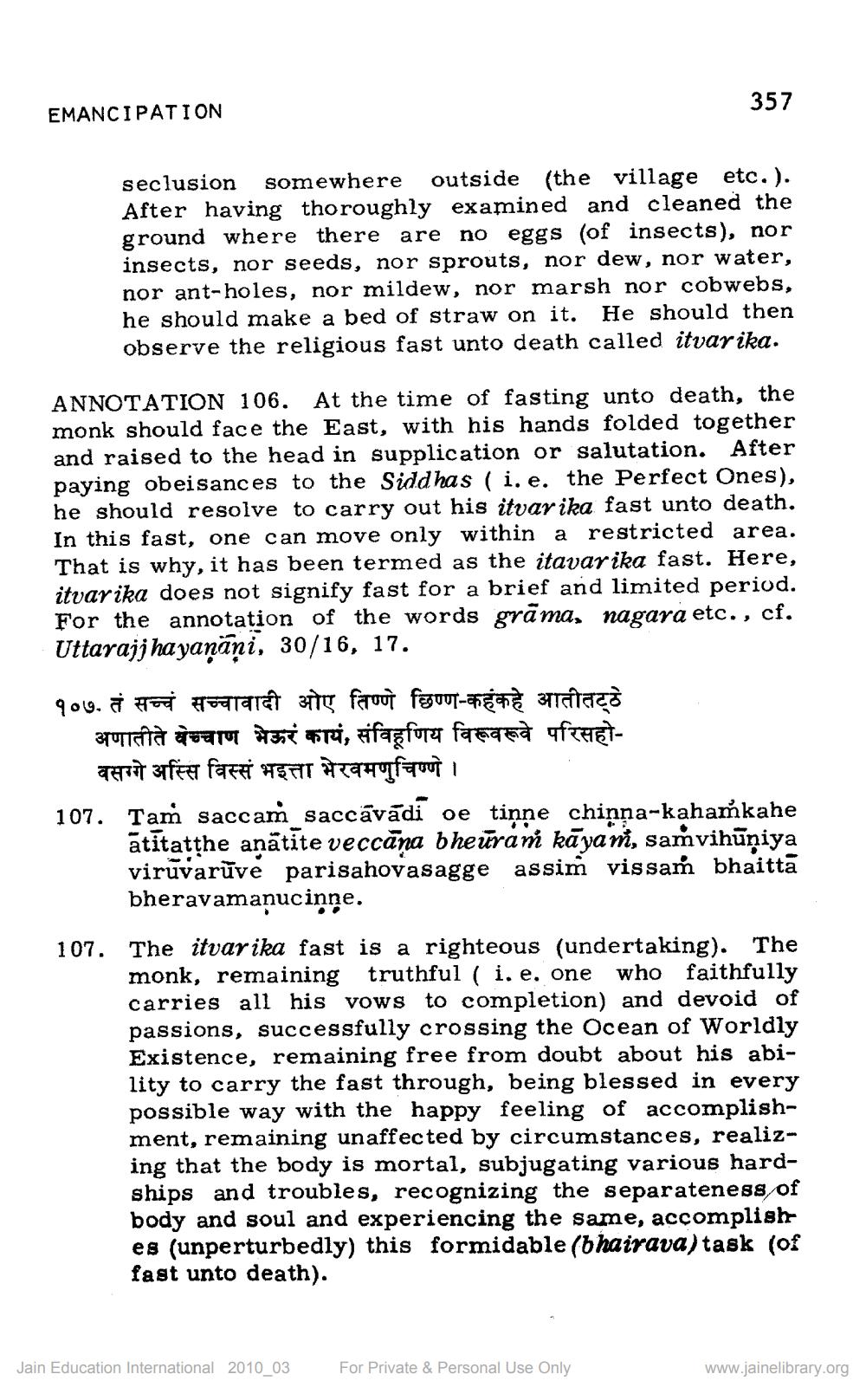________________
EMANCIPATION
357
seclusion somewhere outside (the village etc.). After having thoroughly examined and cleaned the ground where there are no eggs (of insects), nor insects, nor seeds, nor sprouts, nor dew, nor water, nor ant-holes, nor mildew, nor marsh nor cobwebs, he should make a bed of straw on it. He should then observe the religious fast unto death called itvar ika.
ANNOTATION 106. At the time of fasting unto death, the monk should face the East, with his hands folded together and raised to the head in supplication or salutation. After paying obeisances to the Siddhas ( i.e. the Perfect Ones), he should resolve to carry out his itvar ika fast unto death. In this fast, one can move only within a restricted area. That is why, it has been termed as the itavar ika fast. Here, itvarika does not signify fast for a brief and limited period. For the annotation of the words grāma, nagara etc., cf. Uttarajj hayaņāņi, 30/16, 17.
१०७. तं सच्चं सच्चावादी ओए तिण्णे छिण्ण-कहकहे आतीतठे
अणातीते वेच्चाण भेऊरं कायं, संविहूणिय विरूवरूवे परिसहो
वसग्गे अस्सि विस्सं भइत्ता भेरवमणुचिण्णे । 107. Tam saccam saccāvādi oe tinne chinna-kahaṁkahe
atitatthe anatite veccāna bheūraṁ kāyan, samvihūniya viruvarūve parisahovasagge assis vissa bhaitta
bheravamanucinne. 107. The itvar ika fast is a righteous (undertaking). The
monk, remaining truthful ( i. e, one who faithfully carries all his vows to completion) and devoid of passions, successfully crossing the Ocean of Worldly Existence, remaining free from doubt about his ability to carry the fast through, being blessed in every possible way with the happy feeling of accomplishment, remaining unaffected by circumstances, realizing that the body is mortal, subjugating various hardships and troubles, recognizing the separateness of body and soul and experiencing the same, accomplish es (unperturbedly) this formidable (bhairava) task (of fast unto death).
Jain Education International 2010_03
For Private & Personal Use Only
www.jainelibrary.org




